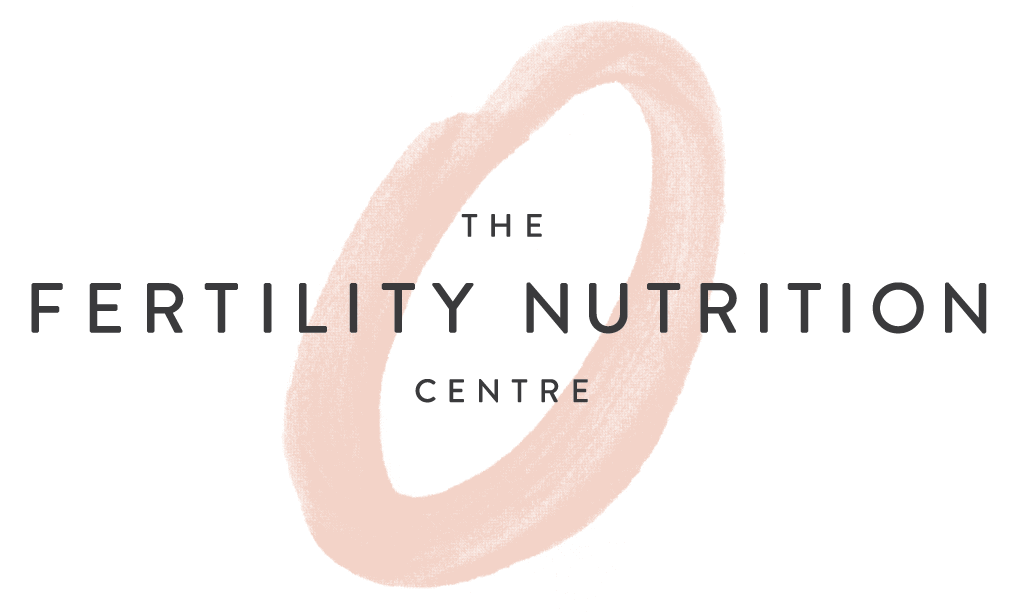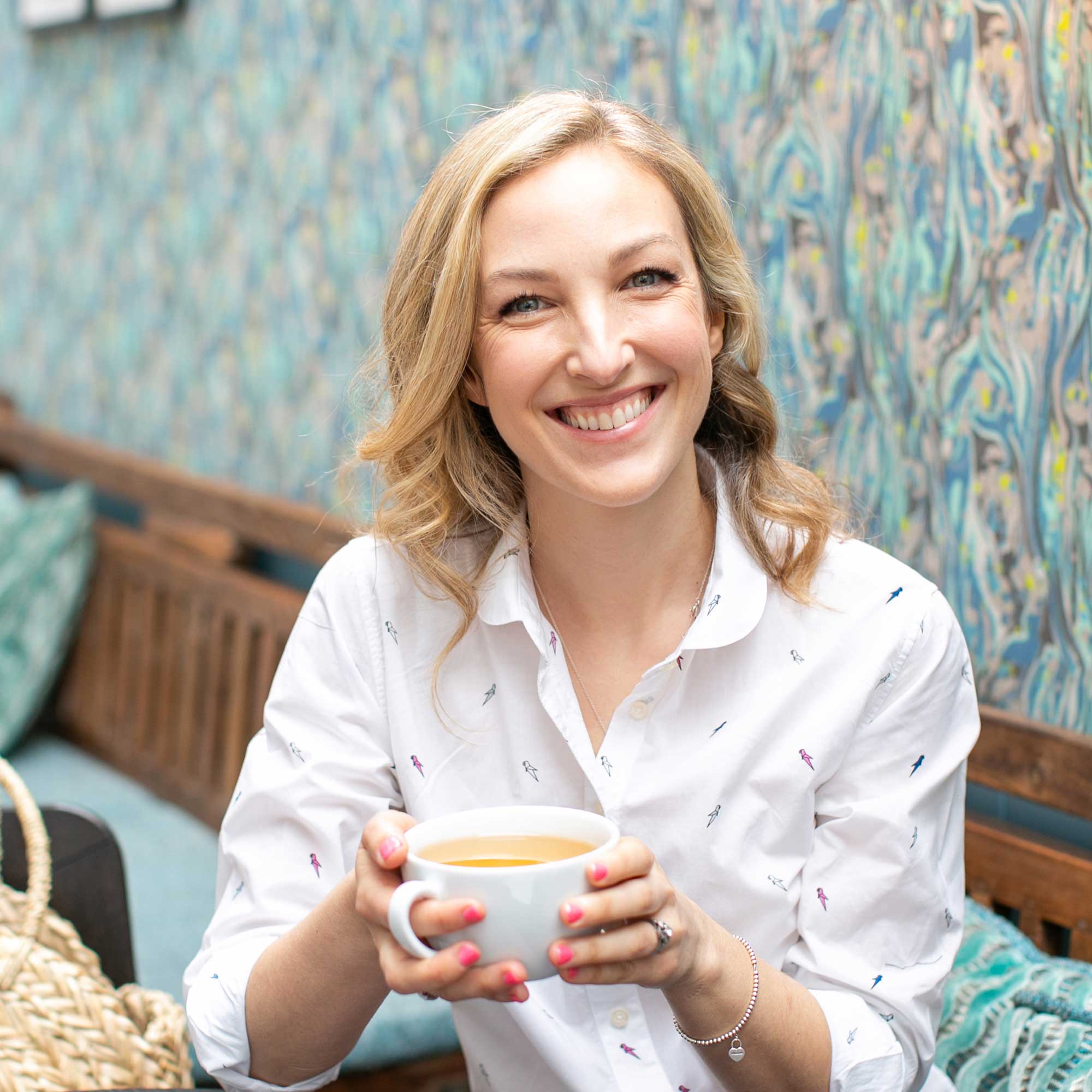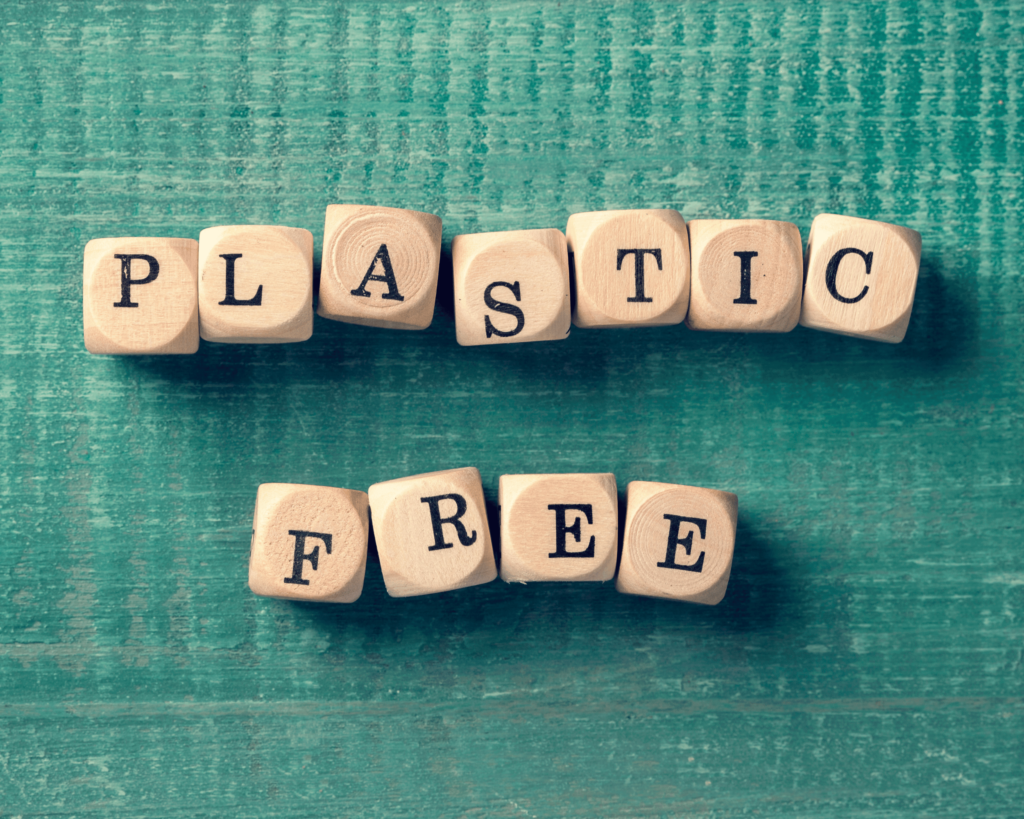
Plastic Free July: Our Top Tips to Support Your Fertility
It’s the perfect time to consider how reducing plastic use can benefit not just the environment but potentially your fertility as well. At The Fertility Nutrition Centre, we’re committed to helping you optimise your health and fertility through mindful choices. Let’s explore how reducing plastic might support your fertility journey.
The Plastic-Fertility Connection
You might wonder how plastic relates to fertility. Many plastics contain chemicals like Bisphenol A (BPA) and phthalates, both of which are known endocrine disruptors. These substances can work in a hormone-like way, and interfere with your body’s own hormonal balance, potentially impacting reproductive health for both men and women.
Sadly, research has suggested links between exposure to these chemicals and various fertility issues, including:
- Reduced sperm quality and quantity in men
- Irregular menstrual cycles in women
- Increased risk of miscarriage
- Potential impacts on egg and embryo quality
While more studies are needed to fully understand these connections, reducing your exposure to plastics is an important step in supporting your overall health and fertility.
Top Tips for a Plastic-Free July (and Beyond)
1. Remove Plastic From Your Kitchen

Start by replacing plastic food containers with glass, stainless steel, or ceramic alternatives. These materials are not only free from harmful chemicals but are also often more durable and aesthetically pleasing. And while you are making this transition over time, make some immediate changes like not heating food in plastic containers or leaving bottles of water exposed to the sun as heat increases the toxicity in the plastic, which leaches into its contents.
Consider beeswax wraps or silicone covers instead of plastic wrap for food wraps. These reusable options are eco-friendly and keep food fresh without introducing potentially harmful chemicals into the food.
Swap plastic chopping boards for wood or glass and cooking utensils for wooden and steel, and never use plastic containers to heat up food in the microwave.
2. Rethink Your Water Consumption
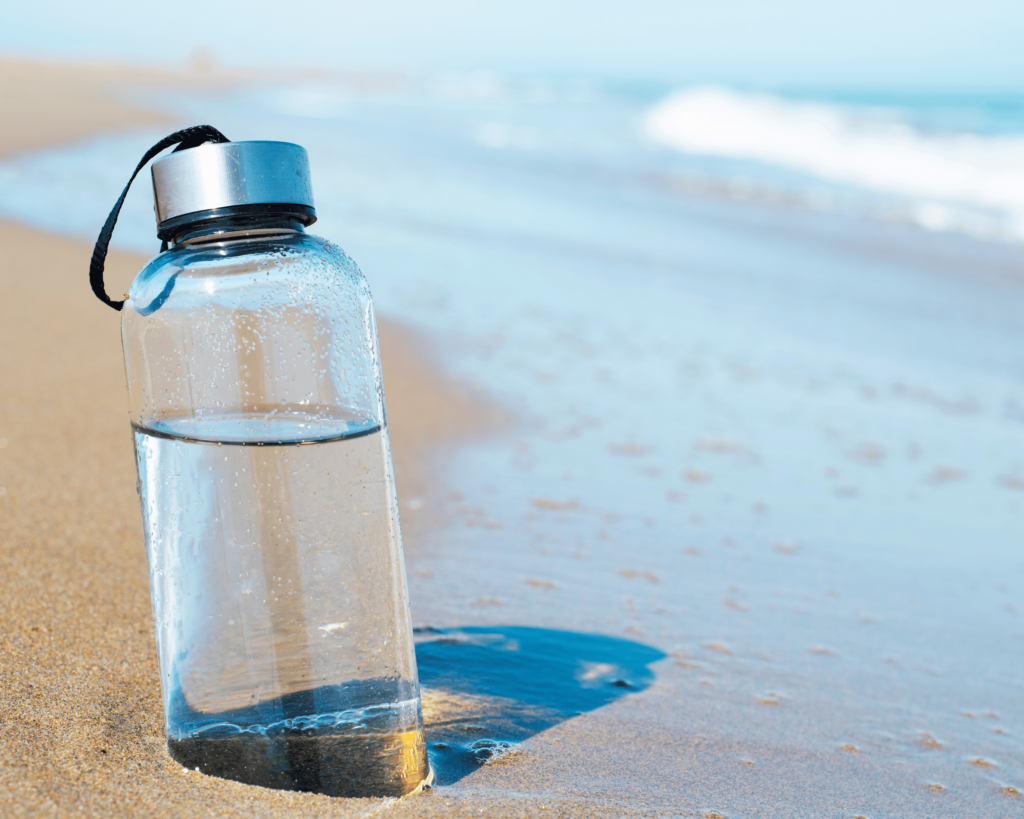
Invest in a good water filter and a reusable glass or stainless steel water bottle. This will reduce plastic waste and ensure you’re drinking clean water free from potential plastic contaminants.
When buying beverages, opt for glass bottles over plastic ones whenever possible. Remove the lid from takeaway coffees to prevent the drink’s heat from touching the plastic – better yet, use a reusable cup for hot drinks when you’re out and about.
3. Shop Smarter
Bring your own reusable shopping bags, produce bags, and containers when grocery shopping. Many stores now allow you to fill your own containers at bulk bins, reducing packaging waste.
Choose fresh, whole foods over heavily packaged processed foods. This not only reduces plastic use but also aligns with a fertility-friendly diet rich in nutrients.
4. Personal Care Product Swap
Many personal care products come in plastic packaging and may contain phthalates or other potentially harmful chemicals. Look for products in glass, bamboo or metal packaging. You could also try making your own using natural ingredients.
Opt for a bamboo toothbrush instead of a plastic one, and consider solid shampoo and conditioner bars to eliminate plastic bottles in your bathroom.
5. Mindful Cleaning
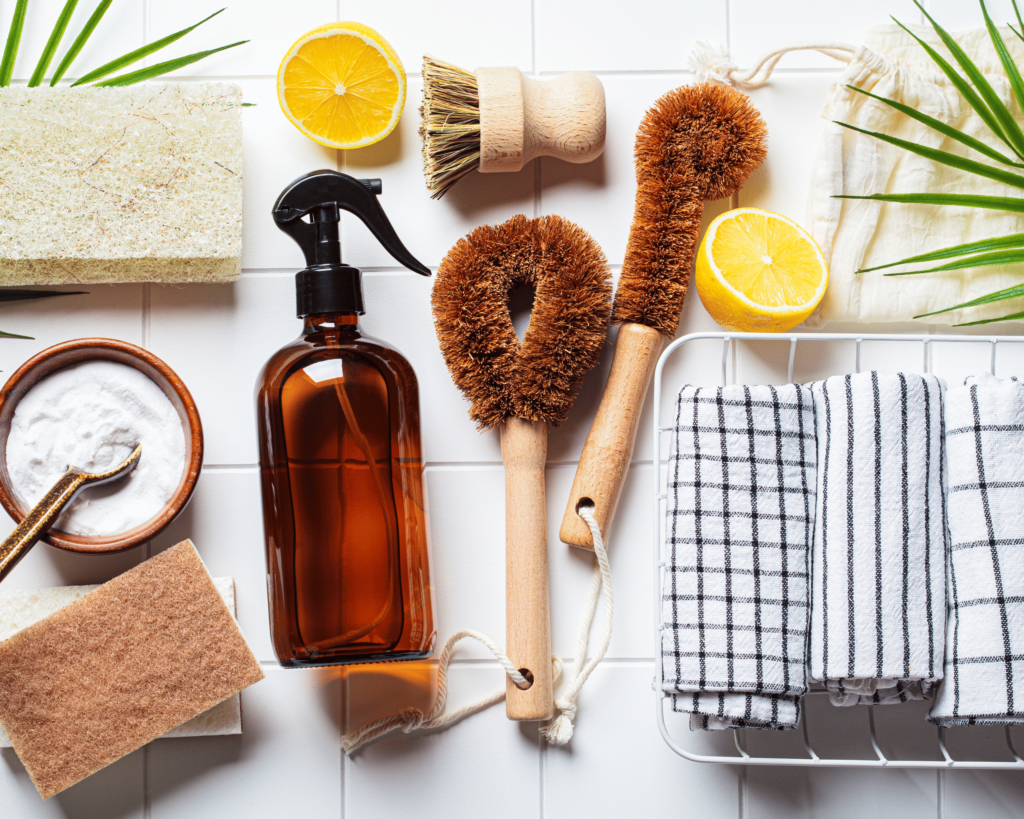
Many cleaning products come in plastic bottles and contain harsh chemicals. Consider making your own cleaning solutions using vinegar, baking soda, and essential oils. If buying cleaning products, look for eco-friendly options in glass bottles or concentrated refills to reduce plastic waste.
6. Rethink Your Tea Routine
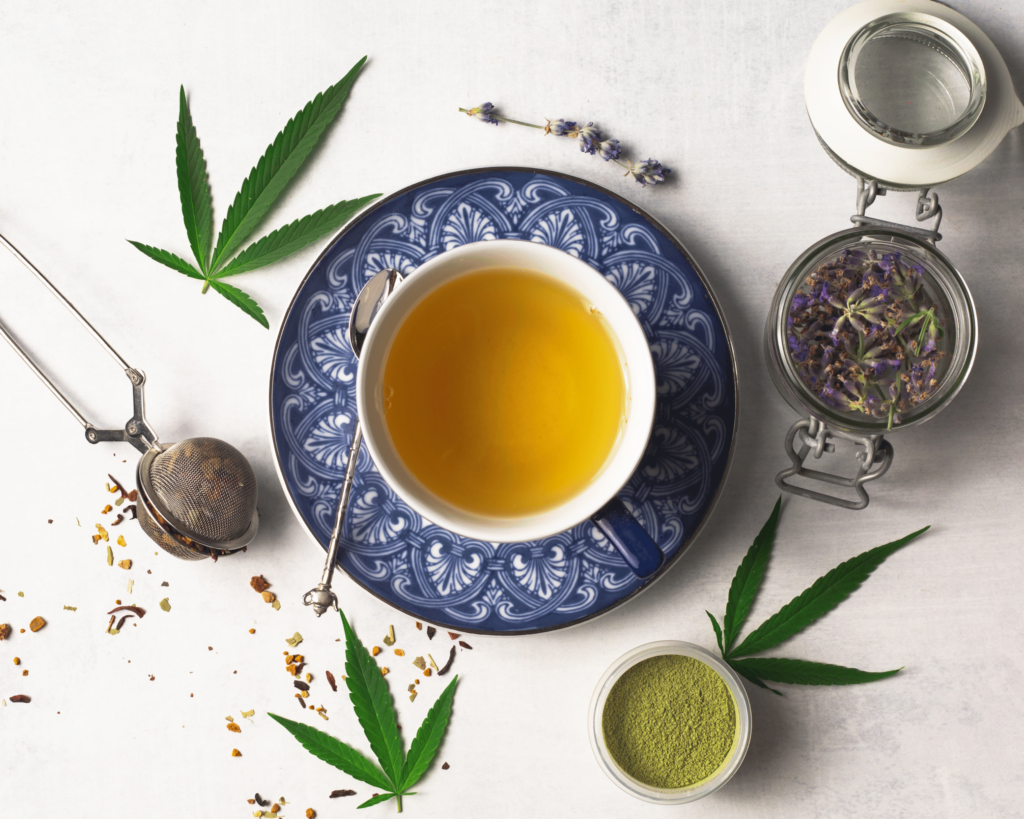
Did you know that many tea bags contain plastic? Opt for loose-leaf tea and a stainless steel infuser instead. This reduces plastic waste and often results in a better-tasting cup of tea anyway.
7. Say No to Single-Use Plastics
Refuse single-use plastics like straws, cutlery, and take-out containers. Carry a small kit with reusable alternatives when you’re out and about.
8. Be Mindful of Hidden Plastics
Plastics can lurk in unexpected places. Chewing gum often contains plastic, as do some tea bags and paper coffee cups (which are often lined with plastic). Being aware of these hidden sources can help you make informed choices.
9. Choose Natural Fibers
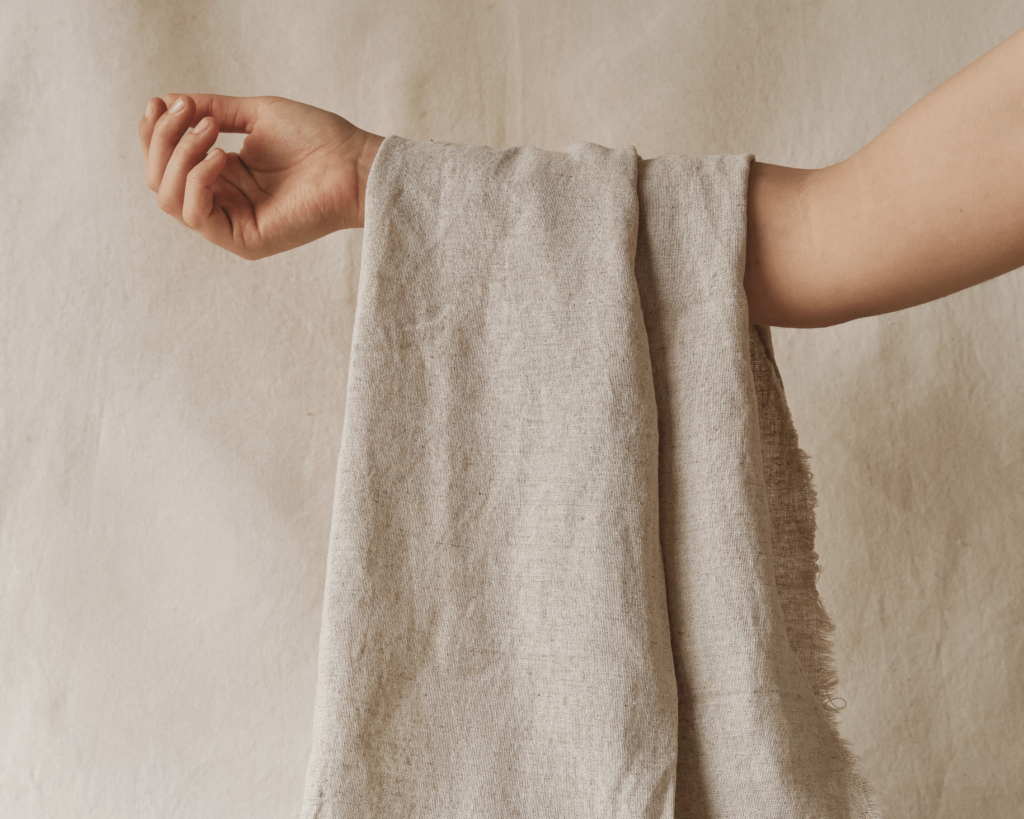
Synthetic clothing made from materials like polyester can release microplastics when washed, and there are some concerns about the absorption of microplastics just from wearing these clothes. When possible, opt for natural fibers like cotton, wool, and linen.
10. Spread the Word
Share your plastic-free journey with friends and family. The more people who adopt these practices, the bigger the positive impact on both the environment and potentially on collective reproductive health.
Remember, It’s a Journey
Going completely plastic-free can be challenging in our modern world. The key is to start small and make gradual changes. Every plastic item you avoid is a step in the right direction for both the planet and potentially your fertility.

Fertility and Lifestyle: A Holistic Approach
While reducing plastic exposure is one piece of the puzzle, remember that many factors influence fertility. At The Fertility Nutrition Centre, we advocate for a holistic approach to fertility. Reducing plastic use is just one of many lifestyle changes that can support your journey to parenthood. Combined with a nutrient-dense diet and other healthy habits, these small changes can add up to significant benefits, not just for your fertility but also for your overall health, vitality, and longevity.
In honour of this year’s Plastic Free July, we encourage you to take steps towards reducing your plastic use. Not only will you be contributing to a healthier planet, but you may also be supporting your fertility in the process. Remember, every small change counts. Whether you’re just starting your fertility journey or have been on this path for a while, know that your choices matter, no matter how small – it all counts.
At The Fertility Nutrition Centre, we’re here to support you every step of the way. From nutrition and lifestyle advice to expert in-depth fertility testing for men and women, we’re committed to helping you optimise your fertility naturally.
Here’s to plastic-free living.
Don’t forget to follow our Instagram page for more fertility nutrition tips from our team of certified practitioners.
Or click here, and head to our directory to book a free introductory chat with a team member.
